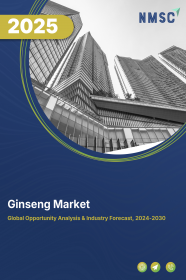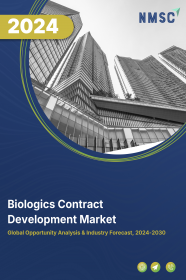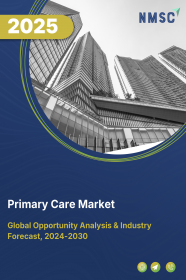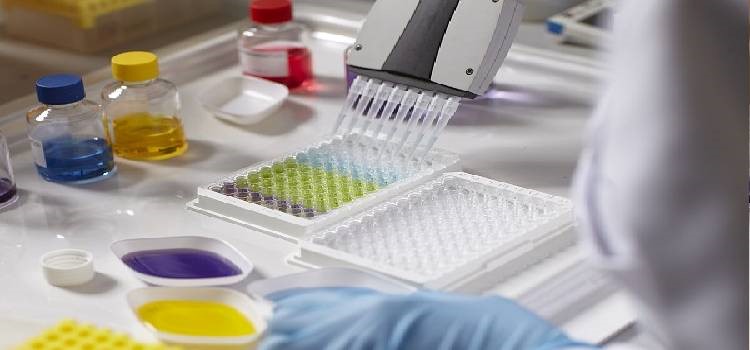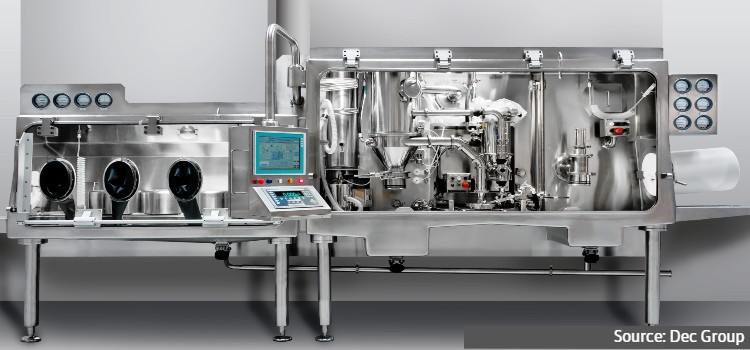
Primary Biliary Cholangitis (PBC) Market by Route of Administration (Oral, Parenteral, and Others), Diagnosis (Imaging Tests, Magnetic Resonance Elastography (MRE), Magnetic Resonance Cholangiopancreatography (MRCP), Ultrasound, FibroScan, Blood Tests, Cholesterol test, Antibody tests, Liver tests, and Others), by Treatment Type (Liver Transplantation, Drug Therapy, Ursodeoxycholic acid (UDCA), Obeticholic acid, Fibrates, Budesonide, and Others), and by End User (Hospitals, Specialty Clinics, Homecare, and Others): Global Opportunity Analysis and Industry Forecast, 2024–2030
Market Definition
The global Primary Biliary Cholangitis (PBC) Market size was valued at USD 779.3 million in 2023 and is predicted to reach USD 1385.30 million by 2030 with a CAGR of 8.6% from 2024 to 2030. Primary biliary cholangitis (PBC), formerly known as primary biliary cirrhosis, is a chronic autoimmune liver disease that primarily affects middle-aged women. It is characterized by the progressive destruction of small bile ducts within the liver, leading to impaired bile flow and accumulation of toxic substances within the liver cells. This can eventually lead to liver damage, cirrhosis, and liver failure.
The symptoms of PBC include fatigue, itching, dry eyes & mouth, and jaundice. The diagnosis of PBC is typically made through blood tests that measure levels of certain antibodies and liver enzymes. A liver biopsy may be performed to confirm the diagnosis and assess the extent of liver damage.
The treatment for PBC aims to slow the progression of the disease, relieve symptoms, and prevent complications such as liver failure. This may involve medications to improve bile flow and reduce inflammation, as well as lifestyle modifications such as avoiding alcohol and maintaining a healthy weight. In some cases, a liver transplant may be necessary.
Market Dynamics and Trends
The growing prevalence of PBC is increasing globally, which is driving the demand for effective treatments is driving the growth of the primary biliary cholangitis market. According to the National Library of Medicine, in Europe, 22.27 people out of every 100,000 is diagnosed with PBC in Europe in 2021. Moreover, the growing geriatric population across the globe who are more prone to develop PBC further drives the growth of the market. According to the World Health Organization (WHO), the number of people aged 65 and older is expected to reach 2.1 billion by 2050.
Furthermore, the advancement in blood tests and imagining technologies such as MRI for the early detection and treatment of primary biliary cholangitis further fosters the growth of the PBC market. However, the high cost of primary biliary cholangitis diagnosis is the major factor restraining the growth of the PBC market. On the contrary, the introduction of novel therapies such as gene therapy to revolutionize the treatment of PBC by correcting genetic mutations and enhancing the immune system's ability to fight diseases is expected to create ample opportunities in the growth of the PBC market in the coming years.
Market Segmentations and Scope of the Study
The primary biliary cholangitis (PBC) market share is segmented on the basis of route of administration, diagnosis, treatment type, end-user, and region. On the basis of the route of administration, the market is segmented into oral, parenteral, and others. On the basis of diagnosis, the market is divided into imaging tests, magnetic resonance elastography (MRE), magnetic resonance cholangiopancreatography (MRCP), ultrasound, fibroscan, blood tests, cholesterol test, antibody tests, liver tests, and others.
On the basis of treatment type, the market is classified into liver transplantation, drug therapy, Ursodeoxycholic Acid (UDCA), obeticholic acid, fibrates, budesonide, and others. On the basis of end-user, the market is divided into hospitals, specialty clinics, homecare, and others. The regional breakdown and analysis of each of the aforesaid segments include regions comprising North America, Europe, Asia-Pacific, and RoW.
Geographical Analysis
North America holds the dominant share of the PBC market and is expected to continue its dominance during the forecast period. This is attributed to factors such as the growing incidence and prevalence of primary biliary cholangitis in North America due to changes in lifestyle, diet, and environmental factors such as xenobiotics exposure that can cause decreased tolerance to the lipoic acid-conjugated regions of the mitochondrial pyruvate dehydrogenase complex, specifically the E2 component demand for PBC treatments and medications is growing in this region. According to the American Liver Foundation, 65 out of every 100,000 women in the U.S. have primary biliary cholangitis in 2021.
Moreover, the presence of developed healthcare infrastructure coupled with improved diagnostic techniques and awareness of PBC in this region is further driving the growth of the PBC market. According to the Centers for Medicare & Medicaid Services, national healthcare expenditure reached 4.3 trillion in 2021 in the U.S. as compared to 4.1 trillion in 2020.
On the other hand, Asia-Pacific is expected to show a steady rise in the growth of the PBC market. This is due to the increasing number of geriatric populations in countries such as Japan, China, and Thailand who are more prone to primary biliary cholangitis is fostering the growth of the PBC market in this region. According to the World Bank report, Japan is the country with the highest proportion of geriatric population, with 30% of its total population above the age of 65 in 2021.
Moreover, the growing healthcare industry in countries such as China, India, and Japan coupled with the increasing awareness and diagnosis of the disease, the availability of new & innovative drugs, and the growing demand for healthcare services in further fostering the growth of the PBC market. According to the National Investment Promotion & Facilitation Agency of India, the Indian healthcare industry reached USD 23.3 billion and is expected to reach USD 50 billion by 2025.
Competitive Landscape
The market players operating in the primary biliary cholangitis industry include Ipsen, Gannex Pharma, Cadila Pharma, F. Hoffmann-La Roche Ltd, Pfizer Inc., Mylan N.V., Teva Pharmaceutical Industries Ltd., Novartis AG, Johnson & Johnson Private Limited, Bayer AG, AstraZeneca, GlaxoSmithKline plc, Gilead Sciences Inc., AbbVie Inc., Gilead Sciences Inc., and others. These market players are adopting various strategies such as product launches and partnership to remain dominant in the PBC market. For instance, in April 2022, Gannex Pharma launched the phase 2 trial of the Gannex doese for the treatment of primary biliary cholangitis. Through this treatment trials, the company aims to develop a highly effective medication for the treatment of primary biliary cholangitis.
Moreover, in December 2021, Ipsen entered into a partnership with GENEFIT for acquiring the license of GENEFIT's phase 3 medication named Elafibranor for the treatment of primary biliary cholangitis. Through this partnership, Ipsen owned the rights for the development, manufacturing, and commercialization of Elafibranor. Furthermore, in September 2020, Cadila Pharmaceuticals launched a genetic version of obeticholic acid named Obestocad in India. Through this launch, the company aims to provide a treatment for primary biliary cholangitis (PBC) disease.
KEY BENEFITS
-
The report provides a quantitative analysis and estimations of the primary biliary cholangitis market from 2024 to 2030, which assists in identifying the prevailing market opportunities.
-
The study comprises a deep dive analysis of the current and future PBC market trends to depict prevalent investment pockets in the industry.
-
Information related to key drivers, restraints, and opportunities and their impact on the primary biliary cholangitis (PBC) market is provided in the report.
-
A competitive analysis of the key players, along with their market share is provided in the report.
-
A SWOT analysis and the Porter's Five Forces model is elaborated on in the study.
-
Value chain analysis in the market study provides a clear picture of roles of stakeholders.
PRIMARY BILIARY CHOLANGITIS MARKET KEY SEGMENTS
By Route of Administration
-
Oral
-
Parenteral
-
Others
By Diagnosis
-
Imaging Tests
-
Magnetic Resonance Elastography (MRE)
-
Magnetic Resonance Cholangiopancreatography (MRCP)
-
Ultrasound
-
FibroScan
-
Blood Tests
-
Cholesterol Test
-
Antibody Tests
-
Liver Tests
-
Others
By Treatment Type
-
Liver Transplantation
-
Drug Therapy
-
Ursodeoxycholic Acid (UDCA)
-
Obeticholic Acid
-
Fibrates
-
Budesonide
-
Others
By End-User
-
Hospitals
-
Specialty Clinics
-
Homecare
-
Others
By Region
-
North America
-
The U.S.
-
Canada
-
Mexico
-
-
Europe
-
The UK
-
Germany
-
France
-
Italy
-
Spain
-
Denmark
-
Netherlands
-
Finland
-
Sweden
-
Norway
-
Russia
-
Rest of Europe
-
-
Asia Pacific
-
China
-
Japan
-
India
-
South Korea
-
Australia
-
Indonesia
-
Singapore
-
Taiwan
-
Thailand
-
Rest of Asia Pacific
-
-
RoW
-
Latin America
-
Middle East
-
Africa
-
REPORT SCOPE AND SEGMENTATION:
|
Parameters |
Details |
|
Market Size in 2023 |
USD 779.3 Million |
|
Revenue Forecast in 2030 |
USD 1385.30 Million |
|
Growth Rate |
CAGR of 8.6% from 2024 to 2030 |
|
Analysis Period |
2023–2030 |
|
Base Year Considered |
2023 |
|
Forecast Period |
2024–2030 |
|
Market Size Estimation |
Million (USD) |
|
Growth Factors |
The growing prevalence of PBC across the globe Growing geriatric population worldwide Advancement in blood tests and imagining technologies |
|
Countries Covered |
28 |
|
Companies Profiled |
15 |
|
Market Share |
Available for 10 companies |
|
Customization Scope |
Free customization (equivalent up to 80 working hours of analysts) after purchase. Addition or alteration to country, regional, and segment scope. |
|
Pricing and Purchase Options |
Avail customized purchase options to meet your exact research needs. |
KEY PLAYERS
-
Ipsen
-
Gannex Pharma
-
Cadila Pharmaceuticals
-
F. Hoffmann-La Roche Ltd.
-
Pfizer Inc.
-
Mylan N.V.
-
Teva Pharmaceutical Industries Ltd.
-
Novartis AG
-
Johnson & Johnson Private Limited
-
Bayer AG
-
AstraZeneca
-
GlaxoSmithKline plc
-
Gilead Sciences Inc.
-
AbbVie Inc.
-
Gilead Sciences Inc.
















 Speak to Our Analyst
Speak to Our Analyst



